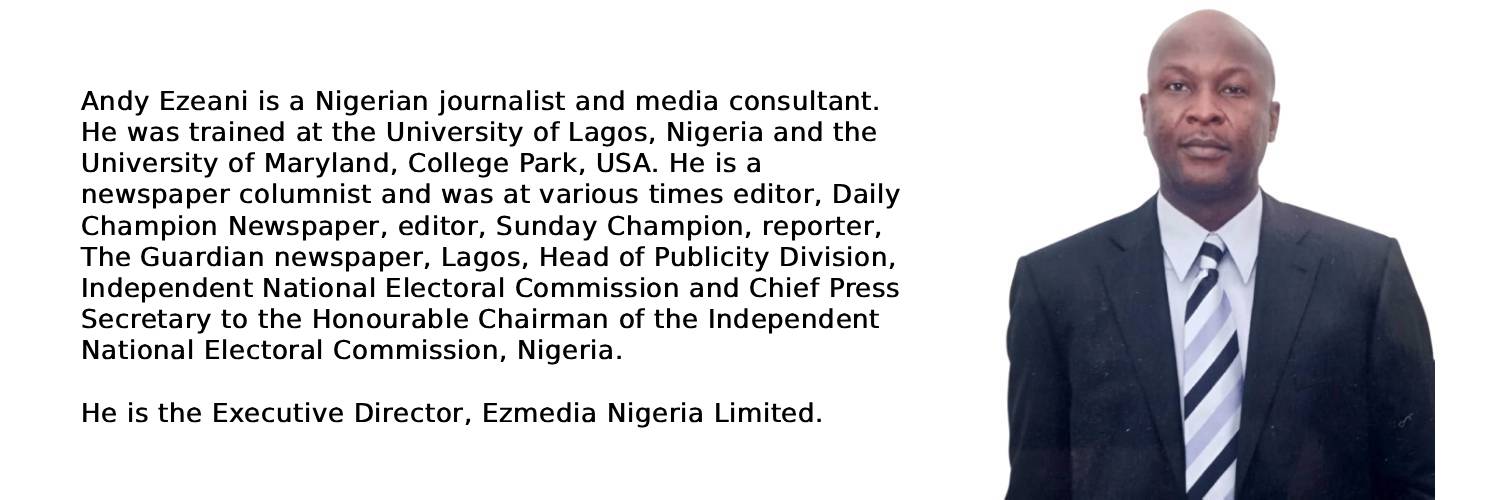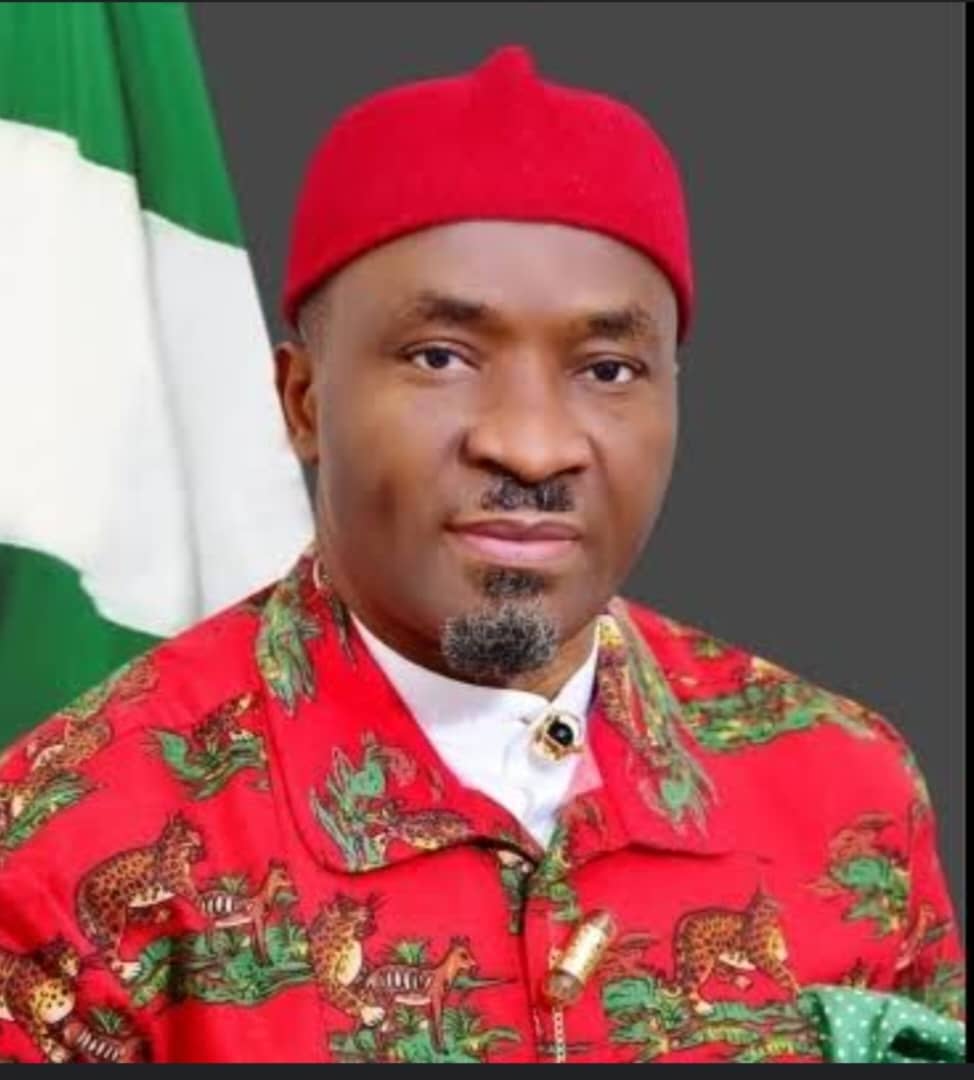Andy Ezeani
What do Nigerians think of their country? Getting a rounded answer to this question is made problematic by the fact that the line between country and government is not always distinct to ordinary citizens.
What Nigerians think of their government is, of course, clear. For many, the government is a scourge. The state, unfortunately, has become no different.
For obvious reason, the governments and their leading officials, over the years and through regimes, have never bothered with what the citizens think of them. They do not need any elaborate vox pop to authentic what they already know. Being in power and having access to and control of the enormous resources of the state seem to be all that matters, anyway.
With the distinction between the government and the state being blurred, an overwhelming percentage of the citizens have grown over time, unfortunately, to have very little affection and fidelity to the country. Genuine patriotism has steadily been eroded by the failure of government.
In place of genuine patriots, a seasonal crop of charlatans is always around the corner. These become vocal patriots once their material interest is oiled. The government loves them.
Forget the common vacuous proclamation by government officials that Nigeria is indissoluble. That is, at once, as meaningless a statement as it reflects a lack of good grasp of human history. If the belief that Nigeria is indissoluble rests essentially on the capacity of the government to chase down and muzzle entities that seek to exit a union that is not guarantying them justice, then, obviously, the notion of indissolubility is tenuous.
There is something sinister and puzzling about a situation where the Nigerian state is ever ready to wage war to stop any of its constituent parts from breaking away, but the same government is not ready to assiduously work to assuage the fears and complaints of such discontents. The tendency remains a dark puzzle of the essence of the Nigerian state. Is this a free state or a trap?
What exactly is Nigeria’s problem? Why has distrust, anger, primitive hate, official chicanery, mind-boggling corruption in public stations, and inequity, among other vices, become defining features of the country? Why are Nigerians increasingly becoming alienated from their own land? The answer is located in political leadership.
In the wake of the substantial harm done to Nigeria by Muhammadu Buhari, It would have been desirably restorative for the state under his successor to undertake a psychological Marshall Plan for Nigeria. The idea would have been to restore trust, a spirit of brotherhood and social cohesion in the land. That would have been a basic step towards getting the country back on track.
Alas, President Bola Tinubu has committed to continuing where Buhari stopped. That forecloses any hope of such a desirable restoration.
Now, the National Assembly is all about trying to hear from Nigerians on what they think of the Constitution, with a view to reviewing it to a better document. It surely, will be interesting to ascertain the true feeling of Nigerians about Nigeria. The fear, however, is that this process, driven by the political elite and substantially controlled by them, will fall short of the desired end.
But then, it is no always about the law. Acts of statesmanship, expressed through manifest disposition and examples by the leadership, often provide far more impactful guide for a society. Tinubu has not risen to a shining light in this wise.
The variant of a scorch-earth politics by his apostles in Lagos, which was thrown up with his bid for the presidency in 2022 and has continued to be deepened, hardly promote a united Nigeria.
Not unexpectedly, the constitutional review exercise by the National Assembly is having its intention questioned in that quarter, among others.This is being done in a manner that raises anew the question of what Nigeria means to Nigerians.
A proposal for the review of a part of the Constitution that may not have drawn the attention of many has been flagged by group, ‘Think Yoruba’. The strength of the group is not known.
Their proposal is at the heart of the discussion on what Nigeria is and should be. The group is opposed to what it calls “the indigenous Bill”. The bill proposes that any Nigerian from any part of the country who lives in a place, for say, ten years, or was born in a place, should be a citizen of such a state. That is what obtains in the “civilized” democracies of the world that Nigerians love to live in. Think Yoruba does not subscribe to that. They stand with Donald Trump on citizenship.
For them, “Indigenous identity is based on blood, cultural heritage, and ancestry. It can neither be bought nor be acquired by fiat…. The National Assembly should focus on restructuring Nigeria into appropriate federating units according to ethnolinguistic and cultural heritage”
Obviously, the ultra-nationalist tendency that came up in the Lagos axis of the South West with the advent of the Tinubu presidency is digging in. They are entitled to their belief, of course, and there is nothing wrong with that.
The problem with Nigeria has been an extended unhelpful habit of not confronting its realities. Nigeria wants to be seen as a progressive democracy. But then, it also wants to promote traditionalism and flourishing influence of traditional rulers with chiefdoms.Some shadowy forces even want to enthrone a dual national traditional rulership.
The 1999 Constitution provides in section 41(1) that “Every citizen of Nigeria is entitled to move freely throughout Nigeria and to reside in any part thereof, and no citizen of Nigeria shall be expelled from Nigeria or refused entry thereto or exit therefrom”
This provision is popular with politicians when they set out to defend hunters, or herdsmen, or fishermen who visit death and harm to parts of the country.
Continuation of Section 41(2), provides though, that “Nothing in subsection (1) of this section shall invalidate any law that is reasonably justifiable in a democratic society – (a) imposing restrictions on the residence or movement of any person who has committed or is reasonably suspected to have committed a criminal offence in order to prevent him from leaving Nigeria”.
The constitution invariably tries to cover all sides, to guarantee liberty and responsibility.
The point is that the 1999 Nigerian Constitution is standing on an assumption of the aspiration of some people on what Nigeria ought to be. These are those who believe Nigeria is or ought to be a modern constitutional democracy.
But there are those who have an entirely different idea. This is part of the deeper Nigerian problem.What do the various sub-sets think Nigeria should be?
Nothing is more dangerous than foisting on a people, a state that does not approximate their aspiration. It is worse when a constitution traps some people into a union and regularly visits deprivation and injustice on them.
The National Assembly, if there is will and sincerity of purpose, should take up such ideas as the Think Yoruba group is canvassing and determine the weight of their contention. Should Nigeria be a cultural/ traditional enriry or a modern state?
A memorandum of association, which is what the Constitution basically is, should not provide the ground for some citizens to be tormented and denigrated, even when they believe they are operating within the ambience of the law. Nigeria should decide what it wants to be.Citizens need to know the rule of engagement within the state.


